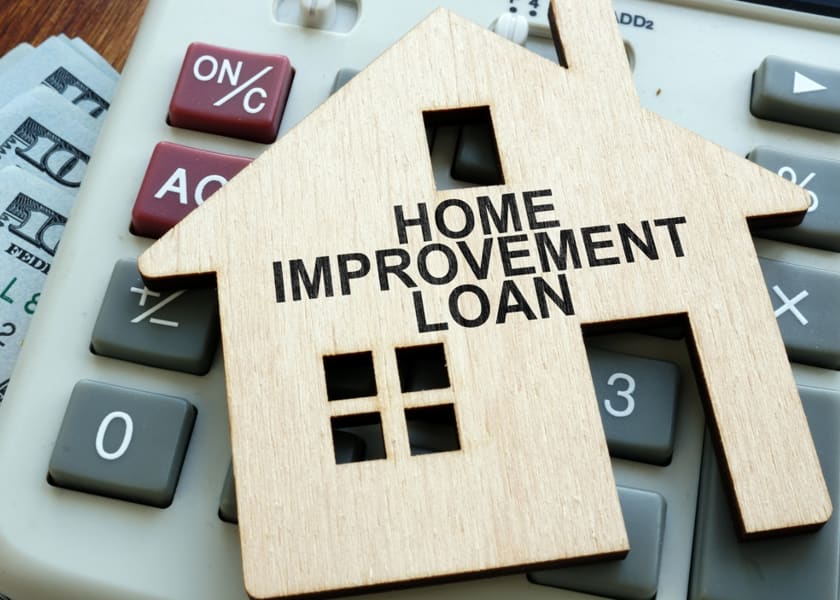Best Mortgage Lender
Quicken Loans 
Largest Online Mortgage Lender
- Offers Verified Approvals
- High Customer Satisfaction
- 24/7 Online Mortgage Services
- Wide Range of Loan Options
Ask Friends and Family
You're probably already aware of some companies in your area that offer mortgages because you see their ads on TV or billboards, but that does not mean they will provide good service. Ask people you trust if they have experience with any particular lending companies and if they would recommend them.
Shop For More Options
Few people pay the mortgage rate that is first quoted to them. Do not accept an initial offer without shopping around to make sure you are getting a good deal, which you can often do online via sites such as Lending Tree or HSH.com. You can also check search for average rates and terms on specific loans offered by both banks and non-banks (which includes credit unions). These sites also allow you to search lenders by state and zip code. The more lenders you contact, the easier it will be to find a low rate and attractive terms; so don't limit yourself to one lender even though you may be tempted to go with the first company you are approved by.
Avoid Fly By Night Lenders
There are mortgage companies that do not have a good track record for one reason or another. Some borrowers may find out too late that they were sold loans at rates much higher than market value, even though their monthly payment was lower. Other homeowners discover they have interest rate "balloon payments"--a single large payment due at the end of a short time period instead of several smaller ones over the course of 30 years--or that the cost to refinance their homes is so high because they are paying fees associated with subprime loans. While there's no way to be certain about every lender in your area, it's a good idea to check with the Better Business Bureau and/or state authorities if you have concerns about a lender.
Do Your Homework While Shopping
Interest rates on mortgages are not set in stone. At any given time, they can vary from one business day to the next. So although it may take you some time to search multiple lenders and compare terms and rates, you will get better results than just settling on the first offer that comes along. You may also want to consider locking in an interest rate even though there is a chance that it will go down further in the future if you think home prices might rise more quickly than expected, meaning refinancing at a lower rate would be less costly than paying off your current loan.
Ask Your Lender What They Can Do
No matter how high or low a lender's rates may be, there is usually room for negotiation. Lenders will often give borrowers the option of paying additional closing costs in exchange for a lower interest rate. Be persistent if you have been offered an initial quote that seems too high and keep trying even if you are told no at first. Sometimes lenders lose track of their ability to negotiate as they start seeing more borrowers who accept their first offer without shopping around, but that does not mean negotiating is impossible.
Fixed Rate Mortgage Loan
Fixed rate mortgages generally offer more stability than ARMs because they do not adjust based on market conditions. The downside is that their rates cannot decrease; however, many people choose them anyway because of their predictability. Generally speaking, lenders will require higher down payments from borrowers who want fixed-rate loans as opposed to those who qualify for ARM rates.
Adjustable Rate Mortgages
ARMs are more appealing for many people because their rates can decrease by several percentage points over time. The downside is that borrowers who take this route will usually face higher monthly payments when interest rates adjust upward, which could happen if the prime rate goes up. Lenders generally prefer applicants with good credit scores and steady income who have made down payments of at least 20 percent toward their mortgages.
You may also need to provide proof that you have enough money in savings to cover three months' worth of payments if your home were suddenly to become unlivable or market conditions change drastically. Keep in mind that lenders may go back and review your initial decision during an ARM's adjustment period, meaning you may wind up back where you started with an adjustable-rate loan that cannot decrease.
Consolidation Loans
You might consider this type of mortgage if you have other high-interest loans, such as credit card debt. A consolidation loan would enable you to combine several debts into one payment, though you will need decent credit in order to qualify for this type of deal. This is because your new mortgage includes a lengthy repayment period so it can be difficult to keep up with the payments - even at the lower interest rates associated with them - if your financial situation isn't stable.
Mortgage Refinancing
Refinancing occurs when borrowers take out a new mortgage on their old homes in order to pay off their previous loans. Borrowers might take this route if they think that market conditions will drop over time, meaning they can get a lower interest rate on their new mortgages. Even though you'll have to cover closing costs, refinancing could still be advantageous because the lender will occasionally reduce the interest rates for existing customers when considering these deals.
Conclusion
The first thing you need to do is find a mortgage lender. This financial institution will help you find the right mortgage and also provide information along the way that is important for your purchase decision-making process. To make sure you choose wisely, it’s best to ask your real estate agent for referrals of trusted lenders in your area who have served their clients well before. Choose carefully!

















